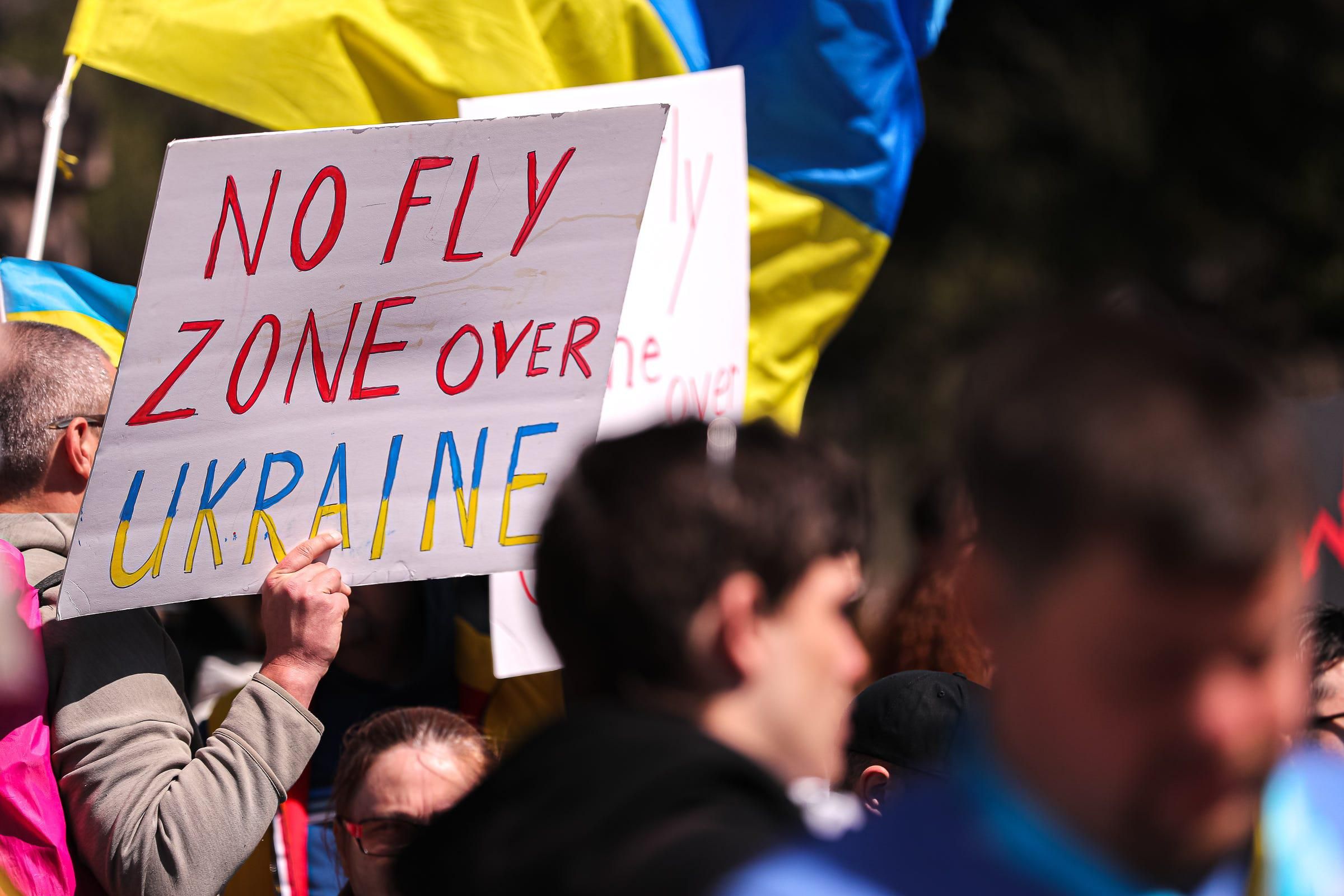Debates are raging about whether the US and its allies should enforce a no-fly zone over Ukrainian airspace. Some observers say it is the surest way to protect Ukrainians and push back against a Russian air campaign. Others say that such a move would be catastrophic, ushering in a third world war.
What is a no-fly zone, and what are the risks of enforcing one?
A no-fly zone designates specific airspace “off-limits” to aircrafts. This can be done to protect certain geographical areas, foil attacks against civilians, or prevent surveillance.
Essentially, this means that a military alliance will force violators to ground their aircraft – even shooting them down if necessary.
Some analysts say that enforcing a no-fly zone is a proven way to denigrate an enemy’s military capabilities and lower the temperature of combat. But, in reality, this move can significantly raise the risk of escalation and miscalculation.
For Russia, a US-led no-fly zone would undoubtedly be viewed as a declaration of war. What’s more, if Biden were to give US and NATO forces the go-ahead to shoot Russian planes out of the sky, this would bring Washington into direct conflict with Moscow, an escalation the White House has desperately sought to avoid. Indeed, this is an extremely dangerous place to be, particularly as Russia has experienced a series of military setbacks in recent days – and an increasingly erratic President Vladimir Putin has put Russia’s nuclear defensive forces on “high alert.”
When have they been enforced before?
The US has taken part in implementing no-fly zones in Iraq, Bosnia, and Libya to varying degrees of success. (The Obama administration refused to enforce one in Syria, citing the threat of a dangerous escalation with Syria and Russia.) But it’s one thing to up the ante on lone despots like Saddam Hussein and Muammar Qadaffi. It’s quite another to raise the stakes with Russia, which has the world’s largest nuclear arsenal and a very strong air game (though its oft-lauded air force has still not gained superiority over Ukraine).